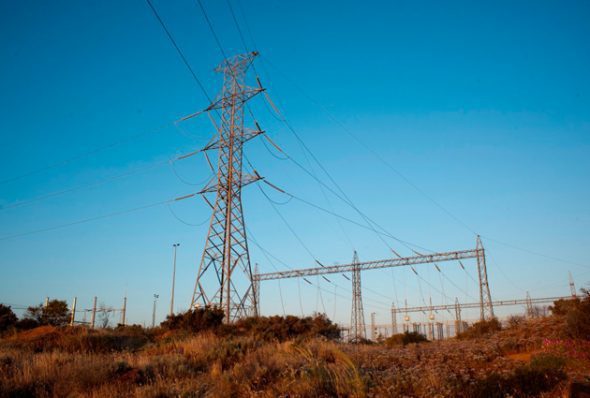Federal and state governments have agreed to an independent inquiry into the rules governing Australia’s energy markets, but the states have resisted attempts by the Coalition to force them to back away from their individual renewable energy targets.

The hastily called meeting, held in Melbourne after the Coalition decided to use the South Australia blackout to attack state-based renewable energy initiatives, broke up with no agreement about individual renewable energy targets.
But they did agree to an independent review that the federal government says will provide a “blueprint” for Australia’s power security to be led by chief scientist Dr Alan Finkel. There will be two other members, although they have not been named.
States expressed hope that the Finkel report would move towards a more integrated response and market framework. Finkel, a keen supporter of nuclear, has also expressed his interest in solar and storage.

“My vision is for a country, society, a world where we don’t use any coal, oil, natural gas; because we have zero emissions electricity in huge abundance and we use that for transport, for heating and all the things we ordinarily use electricity for,” he said during a media event relating to his appointment.
“With enough storage, we could do it in this country with solar and wind,” Finkel said at the time.
The appointment of Finkel was pushed by South Australia. It was supported by other states, but they insisted for other members on the panel who had experience of energy transitions.
However, there was no agreement on individual state targets, which the Coalition has been trying to reign in, accusing them of being unrealistic and reckless.
Victoria energy minister Lily D’Ambrosio said the federal government gave no indication of extending the national renewable energy target beyond 2020. ACT energy minister Simon Corbell said the ACT would not resile from its 100 per cent target by 2o20, which is also supported by the local Liberal Party.
On this basis, she said Victoria would go ahead with its reverse auctions next year as planned to help reach the existing renewable energy target, and then their own target of 40 per cent by 2025.
WA energy minister Mike Nahan emerged from the meeting saying that battery storage would have a profound impact on energy markets, and on grid events like that which occurred in South Australia. He said he was looking at market-based mechanisms to incentivise storage and enabling technologies.
South Australia energy minister Tom Koutsantonis re-iterated that AEMO had found renewable generation was not the cause of the outage, but there were software glitches. He is asking the market regulator how these different settings could be allowed to exist, and to be certified.
It is understood that AEMO made a presentation to the ministers about the blackout, in which they said “unequivocally” that the source of generation was not an issue.
Federal energy minister Josh Frydenberg said the Finkel review would build on other reports being conducted by AEMO, the AEMC and the main energy regulator. He said it would make a blueprint for Australia to meet its climate change goals and to meet energy security needs:
He hailed the meeting as a “real breakthrough” and said that energy security was “back to number 1.” He said the meeting discussed battery storage, new inter-connector and new markets for frequency and ancillary services.
The Coalition government, which called for the meeting after using the South Australia blackout to call for Labor states to abandon their individual targets, set the tone earlier in the day by planting details of a “report” in The Australian newspaper that claimed that the “capital cost to consumers” of the Victorian and Queensland targets would be $41 billion.
RenewEconomy asked Frydenberg’s office for the source, explanation and costing of the estimate, but were told we couldn’t have it “until later”. We are still waiting.
Of course, such estimates are nonsense and mean nothing. Queensland is expected to release an estimate next week, but it will be well south of Frydenberg’s $27 billion estimate, and will focus on solar rather than wind.
Bloomberg New Energy Finance, for the record, estimates that Victoria’s renewable energy target of 40 per cent by 2025 would cost between $8 billion and $10 billion of total investment, compared to the federal government’s “scare-stimate” of $14 billion.
But it depends entirely on the mechanism employed and the technology chosen. The reverse auctions have shown a remarkable ability in Australia and around the world to force down prices. And it is not right to say “capital costs forced onto households”.
The developers will pay the capital costs, while the consumers will pay something equivalent to the levellised cost of energy, which with wind and solar will be cheaper than gas and cheaper than new coal.
The Australian also said that the ACT scheme would cost consumers $268 a year. That was an early estimate, since revised by the surprising fall in projects costs.
It will be offset by energy efficiency measures, and in any case the AXCT has been incredibly smart about the way that it has structured the contracts so that it could in fact cost very little if wholesale prices continue to rise across the rest of the country. In effect, they have put a price cap on their electricity for the next 20 years.










